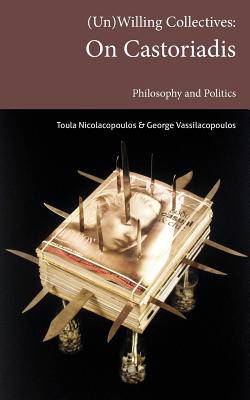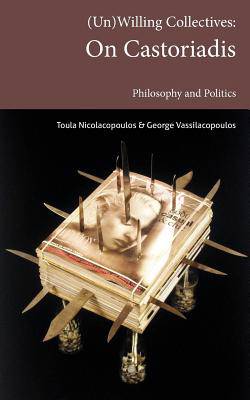
- Afhalen na 1 uur in een winkel met voorraad
- Gratis thuislevering in België vanaf € 30
- Ruim aanbod met 7 miljoen producten
- Afhalen na 1 uur in een winkel met voorraad
- Gratis thuislevering in België vanaf € 30
- Ruim aanbod met 7 miljoen producten
(Un)Willing Collectives
On Castoriadis, Philosophy and Politics
Toula Nicolacopoulos, George VassilacopoulosOmschrijving
In advancing the political project of autonomy, Castoriadis raises the fundamental question: what ought we to think? Following an interpretation of his elucidation of the connections between time, history, and the groundlessness of the world and society, this study argues for a broadening of Castoriadis's question, something which enables attention, not just to the subject matter of thinking, but also its form and the thinker's situatedness. While Castoriadis's insights may be usefully deployed both to expose the limits of inherited thought, which privileges the power of receiving meaning and value over creation and creativity, and to explore the interaction between politics and philosophy, his own approach may well represent the other equally problematic side of the Platonic tradition he criticizes. Consequently, Castoriadis's notions of radical democratic subjectivity and autonomous thinking, both of which respond to the 'ought' question, may inadvertently conform to a mode of being that can do no more than protest the dominant formalism characterising the modern Western world. At the core of this limitation lies a decisive issue for philosophy: whether the enactment of thinking is informed by the historical irruption and retreat of the visionary collective.
Specificaties
Betrokkenen
- Auteur(s):
- Uitgeverij:
Inhoud
- Aantal bladzijden:
- 136
- Taal:
- Engels
- Reeks:
Eigenschappen
- Productcode (EAN):
- 9780992373450
- Verschijningsdatum:
- 31/12/2018
- Uitvoering:
- Paperback
- Formaat:
- Trade paperback (VS)
- Afmetingen:
- 127 mm x 203 mm
- Gewicht:
- 154 g

Alleen bij Standaard Boekhandel
Beoordelingen
We publiceren alleen reviews die voldoen aan de voorwaarden voor reviews. Bekijk onze voorwaarden voor reviews.











